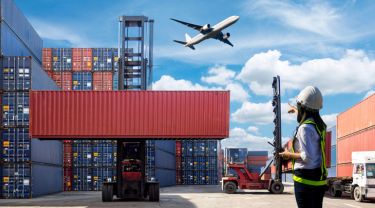As a key centre of trade and investment in Southeast Asia, Thailand offers significant potential for stronger economic ties with Canada. Despite reaching the billion-dollar mark last year, Canadian exports to Thailand represent less than 1% of the country’s total imports. What’s more, average Canadian direct investment into Thailand over the past five years (2019-2023) stands at just C$300 million.
Since the Asian financial crisis (1997-1999), the Thai economy has shown remarkable resilience, growing by an average of 3.4% per year, notwithstanding the impacts of the global financial crisis and the COVID-19 pandemic. We expect the country to maintain a stable growth rate of around 3% over the next five years.
Investing in Thailand
As Thailand aims to become a high-income economy by 2037, increased purchasing power will enhance living standards and drive demand for quality imports. The country’s rapidly urbanizing population presents attractive long-term growth opportunities in premium consumer goods—a segment where Canada shines.
The rising affluence of Thai consumers, coupled with robust demand from international tourists, will also drive the need for high-quality consumer agri-food. Increasing awareness of health and food safety, and the desire for variety are boosting demand for value-added food and beverages, including non-traditional items, like plant-based proteins.
The expanding hotel and food service sectors are expected to further increase demand for feed and food processing ingredients, particularly for products such as wheat. Currently, only about 8% of imported wheat comes from Canada, highlighting opportunities for growth in this traditional Canadian industry. Imports of meat products are also on the rise, presenting potential in niche areas such as frozen boneless beef.
Beyond consumer products, Thailand’s development needs are well-aligned with other areas of Canadian comparative advantage. The country’s infrastructure expansion, including high-speed rail and port upgrades, match with Canadian expertise in construction, engineering and transport technology. Additionally, Thailand’s ongoing industrialization is driving demand for intermediate inputs, like aluminum.
In 2024, Thailand’s aluminum imports rose by more than 22%, to US$ 5.6 billion. While Canada holds a 3% share in the aluminum scrap market, it lacks presence in unwrought aluminum—a sector dominated by Australia, India and the United Arab Emirates (UAE). Amid tariff uncertainties, diversifying aluminum exports to non-traditional markets, like Thailand, is an important step toward enhancing the resilience of this critical export industry for Canada.
Thailand’s active trade in electronics and machinery also presents significant opportunities. As Thailand advances in high-value manufacturing, Canadian exporters will find demand for electrical equipment and machinery in this market.
Notably, Thailand is developing its aerospace industry and establishing itself as a hub for maintenance, repair and overhaul (MRO) services. Last year, Thailand’s imports of aircraft and parts surged 35%, to US$ 2.1 billion, yet Canada’s market share remains a modest 0.3%.
Thailand’s ambitious targets for carbon neutrality by 2050 and net zero emissions by 2065 are expected to drive approximately US$ 85 billion in clean energy investments over the next decade. This presents new market opportunities for Canadian companies specializing in renewable energy, energy efficiency solutions and sustainable technologies.
While Thailand provides a welcoming business environment, these opportunities aren’t without their challenges. Political uncertainty, higher than in some other ASEAN countries, can disrupt the business landscape. Navigating legal and regulatory requirements can also be complex. Additionally, Thailand’s free trade agreements with regional players, like China, Japan and competitors such as Australia, may place Canadian exporters at a relative disadvantage. The country is also prone to natural disasters such as floods, which can add to pressures on the domestic economy.

















